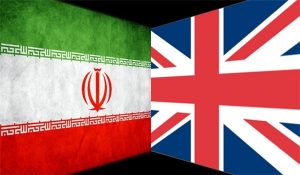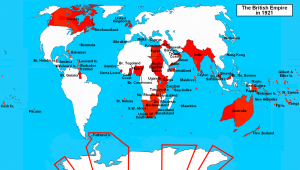The British Labour Party Uses Humanitarian Assistance as a Means of International Diplomacy In the Twenty-First Century
Having obtained control over their internal affairs, the white Dominions, as they became in the twentieth century, began to call for political control over their external affairs. Also, as early as the late nineteenth century, India too had been asking for more self-rule, first internally and then over her foreign affairs, though not to the extent that Australia, Canada, Ireland, New Zealand, and South Africa had been asking India’s demand was that she should be treated equally to that treatment the white colonies received from Britain, and not to be left behind. The First World War, however, strengthened the nationalism of the white Dominions and India. The intensification of nationalism in the white Dominions following the1914-18 War led eventually to the Statute of Westminster. As a result of the Statute of Westminster in 1931, the full nationhood was set up, as they decided to maintain their ties with Britain. As India observed the white Dominions being given full nationhood, she too followed their path at a speed that no British political elite had contemplated.
Moreover, apart from the economic and technological development that had taken place in the nineteenth and the twentieth century in the white Dominions, which were already posing economic and political challenger from within the Empire to Britain, there were almost at the same period, increasing competition both economically and politically from Germany, Japan, Russia, and the United States. However, the crucial challenge was made by the United States. As the United States’ industry continued to expand faster and faster in the inter-War period, and therefore she sought markets beyond her shores, America inevitably came into conflict with the Empire’s economy, which was, under threat from inside already.
Consequently, as a result of the pre-World War Two pressures, the growth of foreign political and economic challenges, especially the USA, the developments that had already taken place in the Empire nations such as the granting of full nationhood to the white Dominions, due to their own economic and political advancements, and with India, already pressing for independence, Britain was in a less advantageous position to fight another World War. After 1939-45 War, in spite of the defeat of the enemy once more, the United Kingdom had lost a quarter of what had remained of her wealth after the First World War; moreover, heavy destruction had been inflicted on Britain, thus a massive programme of War reconstruction war urgently needed. Additionally, as after 1941 the United States and the Soviet Union bore an increasing share of the War efforts, they emerged as two new super-powers, with the US possessing the atomic weapon. Although Britain had the technology to develop such a weapon, given all her economic pressures the cost of competing with nuclear weapons to the degree that the new super-powers had the resources for, was not something that she could afford.



